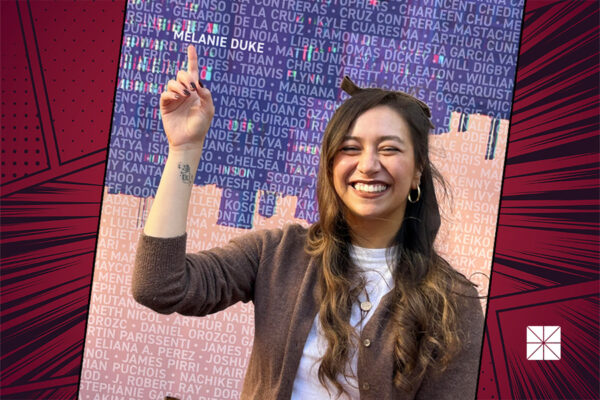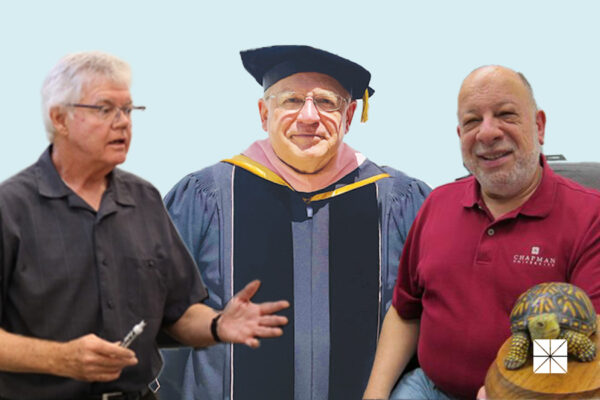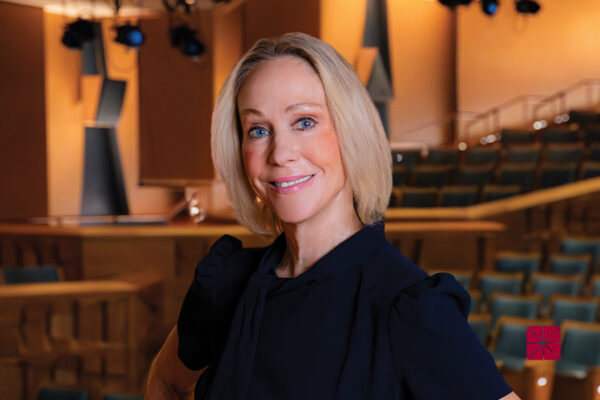“Master class” is a buzzword these days – and for good reason. Who doesn’t want to learn something they’re passionate about from an expert in the field?
For dance students at Chapman University’s College of Performing Arts, master classes are a regular occurance. Thanks to the school’s integration with the Musco Center for the Arts and the university’s Leap of Art program, professional dancers visit campus throughout the academic year and participate in short residencies that allow students to learn through studio classes, question-and-answer sessions, and other learning opportunities that give them an inside look at what it’s like to have a career in dance.
When renowned choreographer Dwight Rhoden, who joined Chapman’s dance faculty in 2021, brought his Complexions Contemporary Ballet to Chapman for a residency, Maya Palmer ’24 participated in five different master classes in one week with the New York-based dance company.
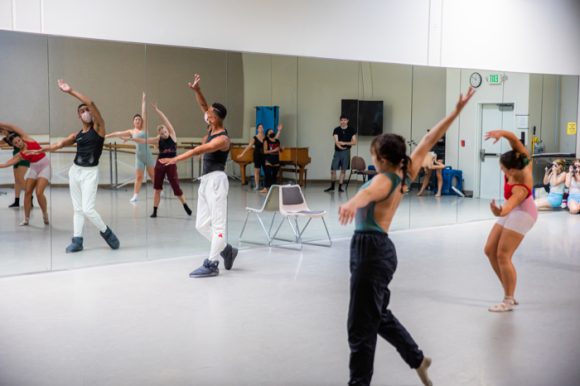
“The classes really challenged my movement in a new way. I’ve always really enjoyed ballet, however, learning their specific contemporary ballet style was new to my body and yet felt so good,” says Palmer, who has been a fan of Complexions for as long as she can remember being a dancer.
“A master class is a chance for our students to have a class with somebody that they don’t normally study with,” says Julianne Pedersen, who chairs Chapman’s Department of Dance.
Students take classes with regular faculty in a variety of styles – ballet, modern jazz, hip hop, ballroom, tap – in courses that meet for the semester just like an English class would, she says.
“But then we get to bring in huge names in the dance field, who may not live in the area, who may even be coming from other countries,” says Pedersen.
“There’s great value in opening up students’ eyes to who is out there, getting those students to see different ways of teaching, different ways of moving, different ways of thinking about the art of dance,” she says.
Giving Dancers a Leg Up in Their Careers
But the residencies aren’t just about what the dancers can learn – it also gives those in the dance business a chance to learn about Chapman dancers.
“People coming from all over the world get to see the level of our students – we have a really great dance department. Our students are really talented, so it’s a way to introduce big names in the field to our students,” Pedersen says.
Some of the guest teachers Chapman brings in are talent agents, and seniors students have opportunities to audition while they are here. Students have signed with top agencies such as Bloc or Go 2 Talent as a result of those opportunities.
“There are a couple who have gotten jobs right from the master classes,” says O’Brien.
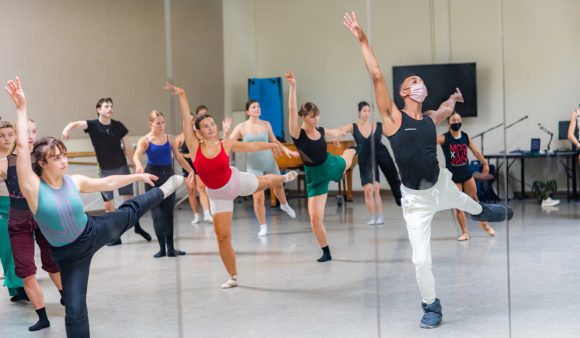
“These master classes, sponsored by the university’s Leap of Art program, provide such valuable insight into various avenues of a dance career, almost like a case study into the lives of those people we’re learning from,” says Cole Neville ’23.
From watching their performance, taking classes and learning repertory, and participating in Q&A sessions, students get a taste of what it is like to be in a professional ballet company, he says.
Chapman is able to consistently provide this opportunity to students thanks to the Musco Center’s Musco Presents Series, which brings companies like Complexions to Chapman, and through a combination of ticket sales, donations and membership, is able to support the master classes and extra events for students.
“It’s just really exciting to work with Richard [Bryant, executive director of the Musco Center],” says Pedersen.
A great deal of thought and effort goes into envisioning each residency, which are as unique as the performers who are participating. Past programs have even included a community outreach component, such as when Diavolo brought veterans into the studio to work with students.
The Complexions residency was a unique experience for Chapman dancers.
“It was just so great to see our students taking classes with some of the best dancers in the world. They’re both standing at the same barre … They got to talk to the dancers. They got to literally hang out at the picnic tables,” Pedersen says.
Upcoming residencies will offer just as many unique opportunities for dancers to learn and prepare for their professional careers.

